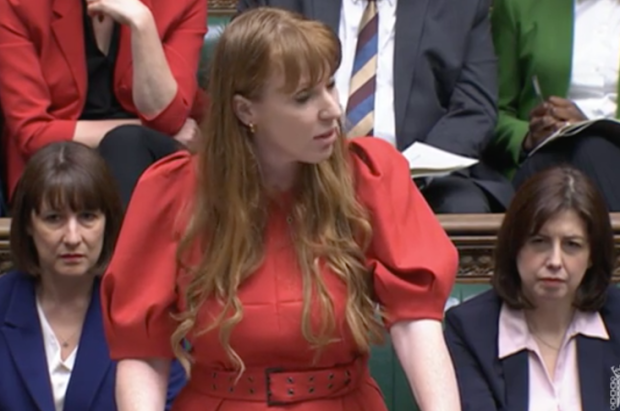In the eighties, we were warned to beware an easily spread, deadly virus. The government’s ominous HIV adverts told us not to ‘die of ignorance’. Thus a generation was educated through fear how to avoid infection by practicing safer sex and avoiding contact with the blood of those who are positive.
While those messages are still important today, HIV no longer represents the death sentence it once did. Still a life-altering and permanent disease, it can now be managed in a way that means people often live full lives with HIV, rather than die early because of it.
No successful vaccination has been developed for HIV, but other medical developments helped to change the prognosis for those who contract it. Antiretrovirals work by stopping the virus replicating in the body, allowing the immune system to repair itself and prevent further damage. For some years already, these drugs have not only been used for long-term HIV patients, but also to ‘stop the virus in its tracks’. PEP (post-exposure prophylaxis) can be given to someone exposed to HIV in the previous 72 hours, to help prevent seroconversion. PREP (pre-exposure prophylaxis) can be given to anyone at risk of catching HIV through future exposure. This approach is also used for some types of bacterial meningitis, when prophylactic antibiotics are given to household contacts of a patient.
So Boris Johnson’s announcement that Britain is aiming to fast track the development of anti-viral drugs which could be used in a similar way to fight Covid-19 is important. Many Covid vaccines have been successfully developed and widely used in record time, but these alone won’t wipe out the threat of the disease because of new variants and a massive lack of worldwide supply. Effective treatments which fight the virus at the early stages of infection, and even before it is able to infect someone who may be exposed, could become vital weapons in the war against the pandemic.
Covid-19 is a very different virus from HIV. Left untreated, most people do not die from Covid, though as we know, plenty do. Among survivors, many are left with permanent damage to their lungs and other long-term symptoms which drastically effect their quality of life. The illness is so new, we can’t confidently know what its real long-term effects are beyond one or two years. HIV is more or less guaranteed to kill anyone left untreated. And while HIV is spread through sexual intercourse or sharing needles, Covid-19 is spread far more easily through social intercourse, with the virus infecting us in our day to day lives through breathing.
Lockdowns and similar restrictions were only ever going to help control the horrific effects of Covid-19 while science tried to catch up. No formulation of social controls alone will defeat this pandemic, and the untold damage lockdowns are doing to our wider health and economic future is unsustainable. Most of us accepted these as emergency measures, but the government is right to think about how we can make the virus less of a threat to life and health in the future.
The Prime Minister gave very few details of his new Anti-viral Task Force. When pressed, two drugs were named in his televised address: Budesonide and Tocilizumab. Neither of these is in fact an anti-viral drug. Budesonide is a corticosteroid and Tocilizumab is a humanised monoclonal antibody, or an immunosuppressive drug. Both have shown potential for treating Covid, but we are some way off using them routinely in the home for all Covid cases. These drugs don’t ‘stop the virus in its tracks’; they modulate the immune response and inflammatory reaction to it.
Boris also mentioned Remdesivir, an anti-viral once intended for use against Hepatitis C and also tested against Ebola. While it proved ineffective for both, these earlier uses have demonstrated its overall safety. It has since been shown in some studies to reduce recovery time from Covid-19 in hospitalised patients, decreasing their chances of needing more intensive treatment and reducing mortality in patients who needed supplemental oxygen.
There are other existing anti-virals which might prove helpful. Favipiravir has been licensed in Japan since 2014 for the treatment of novel influenza. In Hungary, Favipiravir is widely prescribed for outpatient treatment of mild to moderate Covid-19. However, it is not licensed in the UK or USA for flu, and can’t be used on pregnant women as it might damage the unborn baby, so its use in Japan is limited to emergencies.
An Oxford-run clinical trial is underway for people recovering from Covid at home and in other non-hospital settings. Lab studies have yielded good results, and small pilot studies in humans show some benefit in reducing symptoms and the duration of illness. So far 4,600 people have volunteered for the PRINCIPLE trial since it launched in March 2020.
Developed as a preventative medicine and treatment for SARS and MERS in the early 2000s, Molnupiravir has completed its phase two human trial with promising results. According to a Merck press release, it reduces the length of infections and could be a major advancement in virus control. It is hoped that this drug might provide an alternative to monoclonal antibodies, which are administered intravenously. So far, it has only been tested on 202 people without any serious adverse effects. Larger clinical trials are ongoing.
Boris Johnson’s aim of having a miracle pill ready by Autumn sounds ambitious, but as some of these drugs are currently used for other conditions, they have already passed clinical trials for safety and could easily be used ‘off license’ to fight Covid. They could receive rapid authorisation for their new use without the same safety concerns a totally new drug would raise. Any treatments used in the way the Prime Minister described, though, would have to have a positive risk benefit ratio if they are to be given to asymptomatic patients. Ultimately, Covid does not have the same certainty of causing death as, for example, HIV does. Yet anti-virals could nonetheless offer us a route back to normality.
Got something to add? Join the discussion and comment below.
Get 10 issues for just $10
Subscribe to The Spectator Australia today for the next 10 magazine issues, plus full online access, for just $10.



















Comments
Don't miss out
Join the conversation with other Spectator Australia readers. Subscribe to leave a comment.
SUBSCRIBEAlready a subscriber? Log in